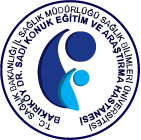ABSTRACT
Objective:
Bacteremia is usually associated with serious morbidity and mortality. Early appropriate antibiotic therapy is one of the major factors contributing decrease in mortality rates. Due to recently increased antibiotic resistance rates, empirical antimicrobial therapy may result in failure. The aim of this study is to investigate gram negative bacteria isolated from patients hospitalized at Gastroenterology Department and also antibiotic susceptibilities.
Material and Methods:
Bacteria isolated from blood cultures of patients between 2005 and 2011 in Başkent University Alanya Hospital were investigated retrospectively. The files of patients with gram negative isolates were investigated. The patients followed by Gastroenterology Deparment with gram negative isolates were studied. Conventional methods were used for bacteria identification and antibiotic susceptibility tests were performed according to Clinical Laboratory Standart Institute (CLSI) criteria.
Results:
Total 160 blood cultures revealed gram negative bacteria which 30 (18.6%) of these were isolated from samples of patients in Gastroenterology Department. Out of 30 patients, 15 were diagnosed as cholangitis, 11 were chronic liver disease and 4 were others (pancreatic neoplasm, acute cholecystitis). The distribution of the bacteria isolated were as follows; 22 Escherichia coli, 4 Klebsiella pneumonia and 4 Pseudomonbas aeruginosa. Among E. coli isolates, the antibiotic susceptibility of ampicillin, ampicillin-sulbactam, trimethoprim-sulfamethosaxole, cefazolin, ceftriaxone, ciprofloxacin, gentamicin, piperacillin-tazobactam, cefepim, cefeperazon-sulbactam ve amikacin were 22.7%, 45.5%, 45.5%, 68.2%, 77.3%, 63.6%, 77.3%, 81.8%, 81.8%, 90.9% and 95.5% respectively. Carbapenem resistance was not detected. There was no significant difference between antibiotic susceptibility rates of E. coli isolates in patients treated in Gastroenterology Department or other clinics (p>0.05).
Conclusion:
The most common gram negative isolate from blood samples in Gastroenterology Department was E. coli. Due to high antibiotic resistance, penicilines, cefalosporines and quinolones must be carefully used in empirical therapy in severe infections in Gastroenterology Departments.



